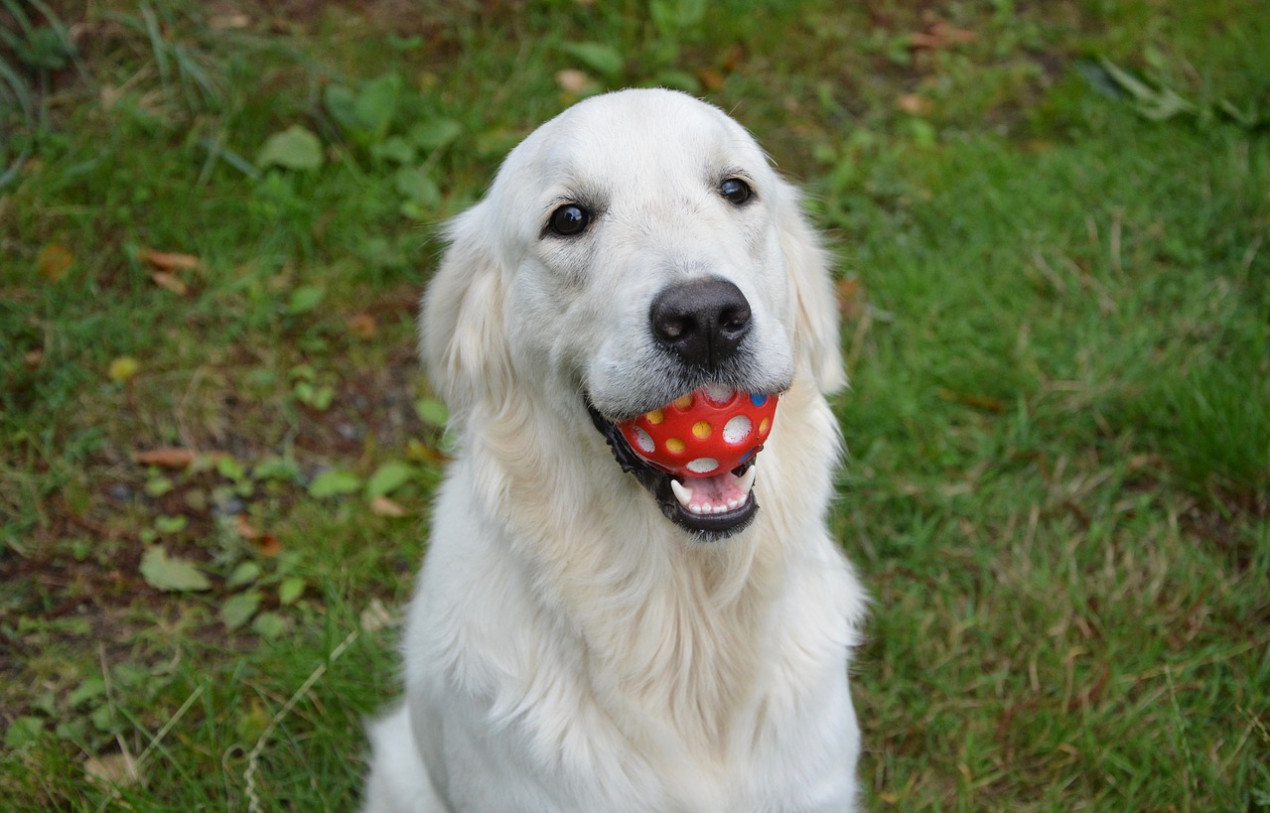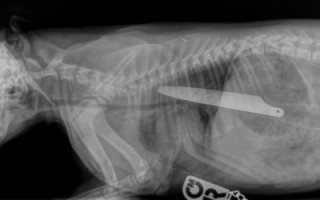We're here to help

What happens when a dog swallows a bone, or other 'foreign body'?
Most dogs, especially puppies, will occasionally swallow something they shouldn’t such as balls, chicken bones or stones. Some objects may be small enough to pass through their system without causing any problems but others may get stuck and your dog could become seriously ill quite quickly.
Treatment may be needed if your dog eats a foreign body so please contact your vet as soon as possible, or, out of hours, find your nearest Vets Now pet emergency clinic or Vets Now 24/7 hospital.
What can cause a blockage in dogs?
Objects that pose a risk for canine intestinal blockage include:
- Fruit stones/Corn on the cob
- Bones
- Stones
- Small toys
- Bouncy and golf balls
- Babies’ dummies
- Rubber ducks
- Coins
- Fridge magnets
What are the dangers of a foreign body in a dog's stomach?
Foreign objects can cause a physical obstruction due to their size and shape, normally at the outflow of the stomach or in the small intestine. If the foreign object is chewed up, the sharp edges of plastic or bone can pierce the intestine, causing peritonitis (an infection in the abdomen).
Socks, pants, needles and thread and other materials can cause a physical obstruction if they ball up, or can unravel and cause a linear foreign body that can lead to the small intestine bunching up and being cut through like cheese wire.
My dog ate string, what should I do?
If you can see a thread, string, or another form of cord hanging from your dog’s mouth or bottom, do not pull it or cut it. Doing so may cause injury and make it more difficult for us to treat your dog.
What about toxic foreign bodies?
Some foreign bodies, such as batteries, are made of materials that are potentially toxic to dogs. Examples include items made of lead and zinc which can cause profound systemic disease if swallowed. If left untreated, swallowing a toxic foreign body can be fatal for your dog

Treatment for foreign body ingestion and canine intestinal blockage
Your vet will perform a full physical examination and ask you questions to try to get as much information about your dog as possible. They will ask you if you know what your dog has swallowed and when he swallowed it as well as questions about your dog’s general health. Your dog may need blood tests, x-rays and ultrasound as well as a general anaesthetic to have the foreign object removed. The health of your dog’s intestine will be assessed and in some cases it may be necessary to remove a portion of the damaged intestine.
How to prevent your dog swallowing foreign bodies
Although it’s almost impossible to stop dogs from putting things in their mouths, try to keep an eye on what they’re chewing. Avoid keeping too many dog toys lying around, and try to keep kids’ toys as well as clothing and underwear out of reach. Ensure fruit stones, corn on the cobs and any cooked bones are disposed of safely and securely so your dog cannot access them. Do not play with your dog using small balls that could be swallowed.

